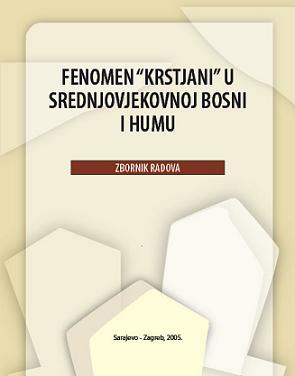
We kindly inform you that, as long as the subject affiliation of our 300.000+ articles is in progress, you might get unsufficient or no results on your third level or second level search. In this case, please broaden your search criteria.

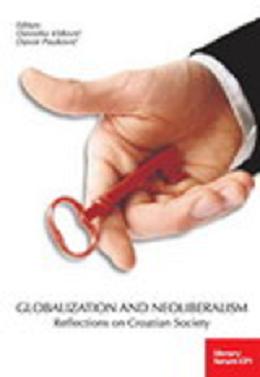
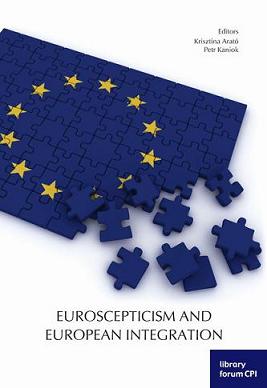
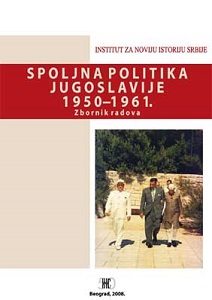
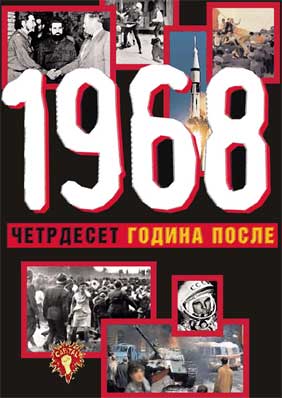
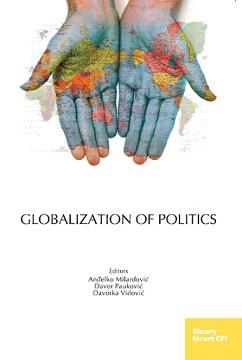
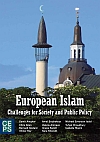
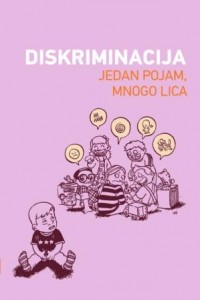
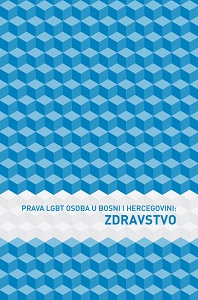
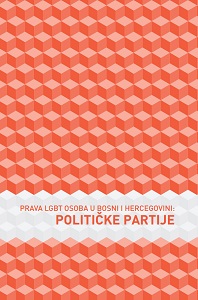
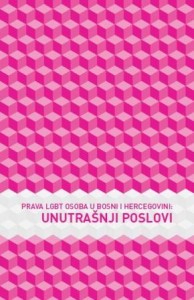
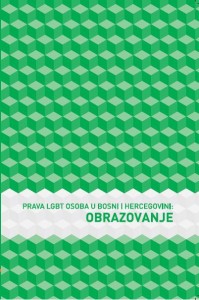
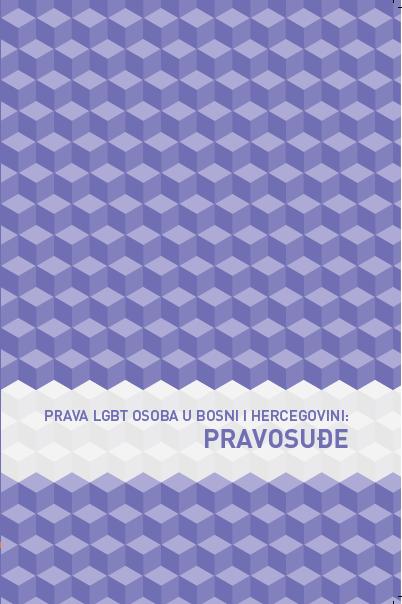
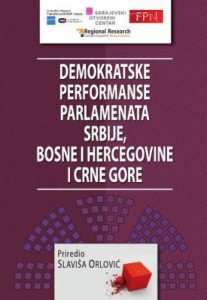
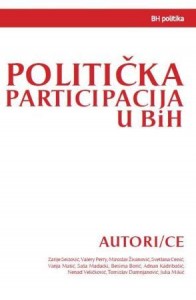
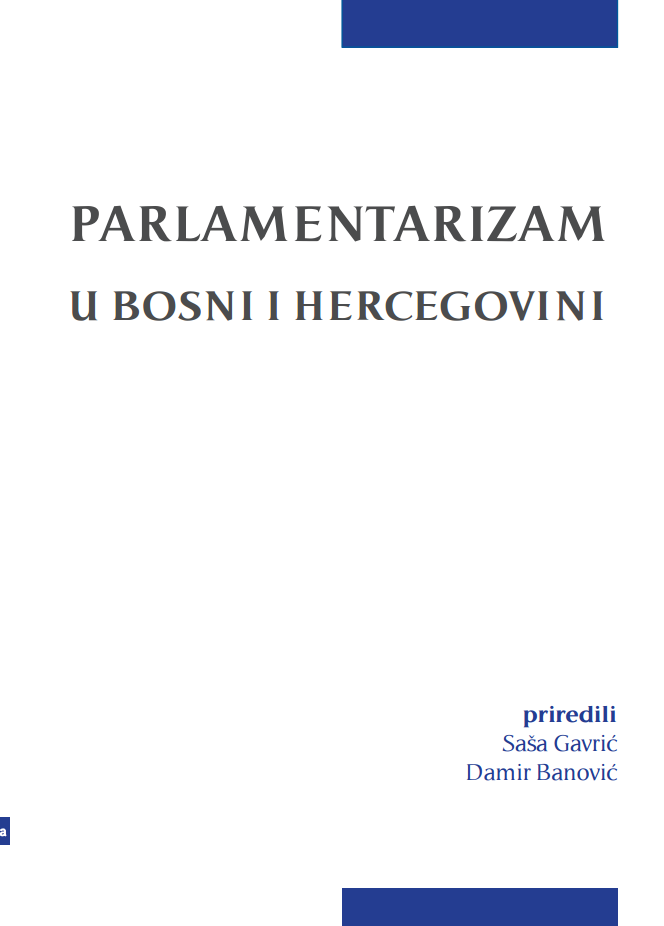
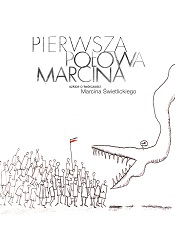
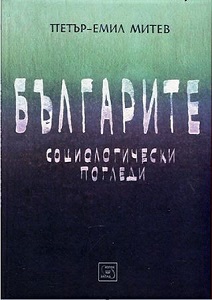
The book concerns the fundamental questions set by the founder of Bulgarian sociology Ivan Hadjiiski: Where are we coming from? What have we gone through? How far have we reached? Where are we going? Sociology is a science in which the person puts his imagination and heuristic potential. Sociology is a craft, in the practice of which the outcome depends on the mastery of the techniques and methodologies, the correct observance of rules and procedures. Sociology is a business that requires certain resources and also can reproduce or increase them. Sociology, however, is something else; it is not only a knowledge of society, but it is a public activity. It loses its meaning beyond the public realization or changes it if this realization does not correspond to the scientific credibility.
More...
(ANOTHER SERBIA) Every Saturday for a period of two months, from the beginning of April till the end of June 1992, sessions organized by the Belgrade Circle were held at the Student Cultural Centre in Belgrade. At these sessions, ten in all, intellectuals, members of the Belgrade Circle and their quest – distinguished writers, scientists, artists, journalists, film and theatre directors, architects, actors, interpreters – expressed their own views of another, radically different Serbia. In times of anguish and affliction, the meetings, attended by a large assembly of listeners experiencing a kind of moral purification, were nonetheless imbued with a frail hope that there still might be a chance for a turn in events. With a desire to present ideas, opinions and sensations shared by the participants of the Belgrade Circle sessions to a much larger audience, the reading public, and to preserve them, because of their merit, in a more lasting form, discussions of over eighty intellectuals were compiled to form this book. In the meantime, the overwhelming disaster has reached its climax: »The Bosnian War«, still raging with no feasible way out as yet, exploded and blazed up like fire. The Belgrade Circle participants, distressed and abashed at the display of all those real or imagined evil deeds, so eagerly reported by the portentous heralds of death voiced hitherto often deeply hidden and silent feelings and thoughts about their burdensome disgust at the plague gripping and afflicting us all. Each participant contributed in his or her own way – rigorous scientific analysis, artistic susceptibility, eyewitness accounts, or simply. A public-minded desperate wail – to the shaping of one new, public opinion, the one that stirred in that sad Spring of ’92 and rebelled against the general fear, animosity, devastation, extermination, ethnic cleansing, forcible population exchanges... All those responsible and public-minded citizens, holding different political opinions, some members of various political parties, with incomparable personal experiences, varied professional interest and often of »objectionable« national origin, showed, however the will to insert tolerance among the basic principles of a humanized way of fife. But, in spite of the pronounced differences, their common aim, discernable in each and every speech imported to the audience, was to finally establish a community based on simple but as yet still unattainable ideals such as peace, freedom, tolerance and justice in place of degrading political, national and religious exclusiveness. Participants focussed their attention on various aspects of the problem: some analysed the roots of hatred and evil; some indicated the disastrous consequences of irresponsible national myth revivals; others warned of menaces yet to come unless we see reason in time. Some were stern, others witty and others still perhaps too prone to pathos, but they were all deeply concerned, and, as it unfortunately turned out, correct in predicting subsequent events. Therefore, individuals who take no notice of current, official policy and who have for a long time now tenaciously refused to render their talent and knowledge to the needs of the authorities, gathered round a project titled »Another Serbia«. Instigating a state of war and providing alleged erudite justification for the necessity of mutual extermination in the name of some noble goals, vague even to the very massacre executors, must not and cannot be the vocation of anyone who considers him or herself an »intellectual«, or earns a living acting as one. Hence, all session participants had but one desire: to mark out a path that may lead into a more promising future, to another, different, better and happier Serbia. »Another Serbia« soon became the synonym of resistance to fabricated lies, nationalistic madness, criminal war, a fascist holocaust, senseless destruction of villages and cities. Thanks are also due to the daily newspaper »Borba« which regularly reported on the Belgrade Circle Saturday sessions, and published a number of contributions presented there... We hope that the Another Serbia we all aspire to be easily discernable in the collection of essays presented in this book. The reader who hopes to find traces of at least some political program will be gravely disappointed. At present, when politics have poisoned the very soul of so many men of letters and knowledge, and when, among the most violent oppressors, in the ranks of all mortal enemy groups, one finds so many proud bearers of scientific degrees, who may actually be designated as men of unmerited and easily squandered reputation, it has become somewhat indecent to praise »intellectual pursuits«. The Belgrade Circle was, however, founded early in 1992 with the aim of retrieving dignity – another dangerous quality! – to public speech and conceived plans of action for the benefit of truth. We do not take an elitist position and stand indifferently above the crowd. On the contrary, being deeply involved and concerned, we place ourselves in its midst. The Association of Independent intellectuals insists upon its main goal, as declared in the program, namely, to bring together »critically oriented public figured who wish to unite their own civil and intellectual engagements with those of other, basically similarly oriented people«. That is why the Belgrade Circle will continue to »promote ideas, deeds and activities that affirm the values of a democratic, civil and plural society...« The Belgrade Circle will »encourage free and critical thought in all spheres of public life. It will support and help institutions and individuals who resist violence and animosity, and who plead for dialogue and for the survival of culture as the only humanly valid way of life«. Fine speeches? Maybe. Nevertheless, the Belgrade Circle has already, and despite many organizational and financial hardships, as well as ugly and unjust abuse from people who should have been, by the very nature of their vocation, in our ranks had they not knuckled under the burden of a more noble – national to be sure – mission, gained an undeniably high reputation. The words uttered with the aim of promoting »Another Serbia« and presented in this book to serve at testimony to the existence of a number of sensible people, shrewd and brave enough to resist suffocation by overwhelming absurdity, were not the only »weapon« used by Belgrade Circle members. They had also an active part in numerous civil and peace movements and events, thus contributing to the establishment of critical public opinion in Belgrade and Serbia: let us recall, for instance, the sad candles and our wake in the park, with souls colder than the Belgrade frost, while one of the past infernal wars – God, which one was it? – was raging out there somewhere; let us recall the »Black Band«, »Yellow Band«, »Student Protest ‘92«, and our endeavours to bring the people of Hrtkovci (»Srbislavci«) to reason; let us recall our guests from Pljevlja, Montenegro, Bosnia... All the time we were just launching our unhappy and, we believe, noble, though perhaps futile venture the very first participant said: let the Belgrade Circle begin it’s work! We hope that by offering this book to the public we have already come a long way. (INTELLECTUALS AND WAR) This volume, Intellectuals and War, follows on the heels of last year’s publication of Another Serbia. Like the latter, it is the result of the work of the Belgrade Circle. As the reader will recall, Another Serbia is a collection of over eighty talks given by members of this association of independent intellectuals and their guests, during ten of the sessions of the Belgrade Circle held every Saturday from the beginning of April to the end of June 1992. Intellectuals and War brings together some fifty texts, which were presented as part of the series »Intellectuals and War« organized every other week, for ten sessions from the beginning of October 1992 until the end of February 1993. At a time when every call for peace, national tolerance, and liberal democracy was being confronted with scorn, disdain, and open ridicule; at a time, that is, when even the most cautious doubts about the utility of the war, which might deflate the state mythology were being denounced as acts of treason committed by slanderers of the National Idea, the Belgrade Circle organized the thematic series, »Another Serbia« and introduced itself to the domestic public as one of the truly rare associations (not to mention political parties, the few exceptions not withstanding) whose members refused on principle to contribute to the destruction of other nations and the demise of their own. With this series and, particularly, with the publication of our book by the same name, the expression »Another Serbia« became a motto for all those who sooner or later came to see the dangers of the nationalist policies of the past five or more years. Unfortunately, many of the dark forebodings expressed in that first series proved to be true. With tragedies mounting at an alarming rate, many words that then sounded very strong, sometimes even, strident, have become but mild reproaches today. Words that once, only a year ago, were just short of blasphemy, have long since become commonplace in the mildest critical discourse in which almost everyone engages. Yet, in looking through the pages of Another Serbia today, one issue emerges from a number of the contributed works that still has not permeated public consciousness deeply enough and has only with great difficulty found its way into the conscience of those individuals to whom it directly refers. This is, of course, the matter of the responsibility of intellectuals for spreading national intolerance, inflaming hatred, advocating war, and – eventually – for instigating crimes and barbaric destruction and causing the isolation, poverty, denigration and scorn which has since come our way. With this in mind, the Belgrade Circle, as an association of – to repeat – independent intellectuals, decided to organize its second thematic series of discussions around this sensitive and uncomfortable question, which is often protected by taboo. The Belgrade Circle did not act impetuously in calling for an open examination of the role of public-opinion makers in the Yugoslav tragedy. Nor did it do so only after having seen the tragic results of conspicuous blunders by writers, scholars, and religious figures in irresponsible national mythmaking or – worse – in open incitement to war. Such a decision was part of the original motivation guiding the future founders of the Circle. Long before the disintegration of the country and before borders were redrawn, territory occupied and people expelled from their homes, they witnessed a number of their colleagues working as free agents or, more often, as institutional propagandists, dutifully reviving national myths, recounting the victims of pats years as if infatuated with death, reworking the ideology of land and blood and skilfully explaining the need for the South Slavic peoples to »separate« from one another once and for all. Seeing this, it became clear to the future members of the Belgrade Circle that it would not be long before these words were turned into deeds. The common denominator for the some twenty philosophers, sociologists, scientists, artists, and journalists who joined together in the Belgrade Circle was, in fact, the decisive refusal to participate in such undignified activities, which could only end in the horrors of war. In its founding Act, and later in number of public statements and individual appearances by its members, the Circle pointed to the responsibility of the »national intelligentsia« and »national institutions« for war and condemned their abuse of public speech. Although against political trials as a matter of principle, the Belgrade Circle argued in its first public statement that not only should politicians, military leaders, and those directly involved in executing their policies be held accountable for their deeds, but also intellectuals responsible for inciting war and causing crimes against humanity, the destruction of cultural and historical treasures, massive displacement of populations and the exile of numerous distinguished creative figures, and the involuntary flight of educated young people. The fact that it was precisely those individuals who given the nature of their work, should have been among our ranks, but chose instead to put their talents, knowledge, and reputation in the service of legitimising a new collectivism, who were the first to poke fun at the Circle and attack it with angry, even threatening messages made it convincingly clear that this important initiative was directed to the right address. At the crucial moment when the class-based identity of society began to collapse from within, these intellectuals, rather then putting their strength and authority into the democratic enlightenment of an apathetic citizenry actively helped to enthrone another new unifying principle, a new unio mistica which would, this time, be based on an artificially awakened and stimulated national identity. Thanks largely to these efforts, the opportunity to become a society of free individuals who act as autonomous citizens in the political sphere and not as anonymous members of the one and only Class, on Nation was again – and, again for a long time – gambled away. Put simply and crudely: once again, »ideologues«, »clerics«, and »guard dogs« have sold us a bill of goods. Few or the participants in the series »Intellectuals and War« were prepared to say that all »national intellectuals« were guided by evil intentions, hatred toward other peoples, vicious greed, futile craving for fame and honour, or the desire to gain the favour of the new/old rulers. It was clear to our authors that there were honest and intelligent people among these »national intellectuals« who sincerely believed that after the fall of the »old regime« it was more important to resolve the national question than to work for the establishment of parliamentary democracy. Reality – as is most often the case – provided them with a real basis for dissatisfaction. However, just as the framers of the idea of the social revolution before them, they turned to the implementation of the national revolution, without paying attention to the means those contracted do to the job – nurtured as they were in our rich tradition – would more than likely use. Thus, it is hard to resist the conclusion that the war began in words. Any rational observer of the now distant events could reasonably have expected the abbreviated series of exchanges between abstract ideas and concrete acts to turn easily and rapidly into bullets. After all, doesn’t the saying go: the pen is mightier than the sword!? A majority of the authors contributing to this volume, share the belief that if intellectuals – who have since become peace advocates – are now amazed and horrified by the sea of spilled blood, the ruined cities and villages, the rivers of displaced and uprooted people, and the previously unimaginable faschisation, impoverishment, and criminalisation of society, they must – if nothing else – face up to their own professional and moral responsibility for this. But this is a question of individual conscience which no one may or should pas a judgment. Some of the text, however, express the belief that another kind of responsibility – one that presumes more tangible consequences than merely having to confront oneself – must surely fall on the shoulders of that »portrait gallery« of our intellectual guard who have consciously advocated war and misted the people, captivating them with otherworldly messages, promising them the heavenly city, submerging them into the past, offering them dignity through force, and turning them away from the most natural desire to live a better and happier life with Others rather than in isolation from the outside world, imprisoned by self-love. One moment openly, the next moment covertly, they supported the consolidation of an authoritarian and indifferent regime, which would carry out the dirty work for them and for the greater glory of the Nation. They graciously allowed the forces of evil to strike, always ready to put the intellectuals’ most daring plans into action. Sometimes participating directly in the government, but more frequently, acting in the shadows as advisors to the absolute ruler and his priests and in collusion with our Volksgeist, these intellectuals were not prepared to take a stand at those moments when the people appeared to have come to their senses. They introduced even greater discord into the already confused political scene as they entered into the ranks of political parties that had the appearance of becoming democratic. Through both their silence and action, they allowed the uneducated electoral body to surrender itself to the one and only real leader. With these texts in front of us, it is tempting to outline a series of »generic-types«, that is, to construct a certain number of »ideal types« from among our national intellectuals. It is easy to understand those readers who would be happy with a string of unique caricature-like portraits. We have merely to think about all those crazed painters, poets of hearth and home, ominous prophets, patented demystifyers of planetary conspiracies and experts in deconstructing the »new world order«, ethno geneticists and amateur historians who trace their nation’s roots to ancient, even prehistoric times, former Marxists who find solace for their collapsed ideology in the »sweet joy of belonging« to the Nation, indefatigable drafters of geopolitical maps, and journalists and columnists who have persistently presented our unsophisticated readers and television audiences with an up side down picture of history and the world. But for now, let’s just keep these in mind: as, in this brief introduction we cannot even hope to sketch out such a typology, much less, to take on a detailed study of some prominent cases. What we can do is hope that a future systematic examination of the role of intellectuals in the wars we are going through will enable us to arrive at an answer to the question posed by the authors of this volume. They themselves have not been motivated by the ambition to offer an answer now and this motivation could hardly be sad to be common denominator among the various texts, which differ both in genre and in the opinions they present. As in Another Serbia, the contributors to Intellectuals and War have their own views and are alone responsible for their words.
More...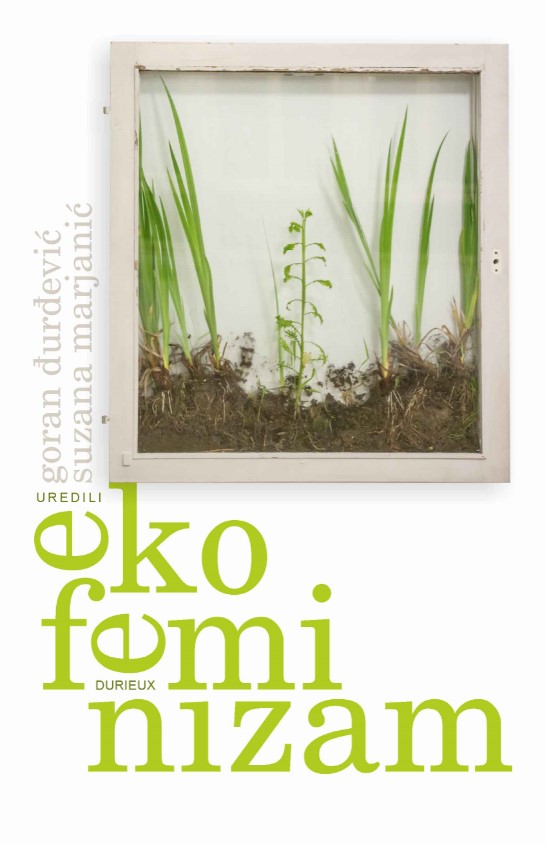
Proceedings Ecofeminism: between women's and green studies, edited by Goran Đurđević and Suzana Marjanić (Durieux Publisher, Zagreb, 2020), consists of 40 texts from the humanities and social sciences (anthropology, journalism, political science, sociology, literary theory, science of education) and art (poetry and prose), written by 37 authors from Croatia, Australia, Bosnia and Herzegovina, Italy, North Macedonia, Serbia, Slovenia, the United Kingdom and the United States. The starting point for edited book was workshop cycle on the Faculty of Humanities and Social Sciences in Zagreb organized with help of professor Drago Roksandić and there was created idea for book by Mirjana Grabovac, Karmen Ratković and Suzana Marjanić. Also, various colleagues such as Dražen Tončić and Mirta Maslać from Durieux, artist Kristina Pongrac and reviewers Ivica Bakota, Zlatko Bukač and Ana Stojanović have been an important part of this volume. The aims of the collection are to actualize ecofeminism and encourage critical reflection and analysis of long-term ecofeminism in Croatia and Southeast Europe; permeation of global and local approaches and knowledge transfer; openness to young authors. For these reasons, the book can be read on several levels: theoretical as a contribution to the knowledge of the theory of ecofeminism in the context of contemporary trends, socio-political as an analysis of social processes and structures, activist through the analytical perspective of activism of individual groups and actors in public, performative and political life. The final part of the volume are poems and this piece of book shows a holistic approach to ecofeminism and integration of scholarship, essays and art which is leading back to the roots and indigenous perspectives of life and community understood as integration.
More...